Did you know a common weed could hold the key to better health? Euphorbia Hirta, often called the asthma plant, has been used for centuries in traditional medicine across Asia, Africa, and the Americas. Over 70% of people in developing countries rely on herbal remedies like this for their health needs, yet many remain unaware of its potential. From easing asthma symptoms to soothing skin irritations, this humble herb packs a powerful punch. In this article, we’ll uncover 17 science-backed health benefits of Euphorbia Hirta, explore how to use it safely, and share practical tips to incorporate it into your wellness routine. Whether you’re seeking natural ways to boost immunity or manage digestive issues, this guide offers actionable insights to help you harness the plant’s healing properties while staying informed about its safe use.
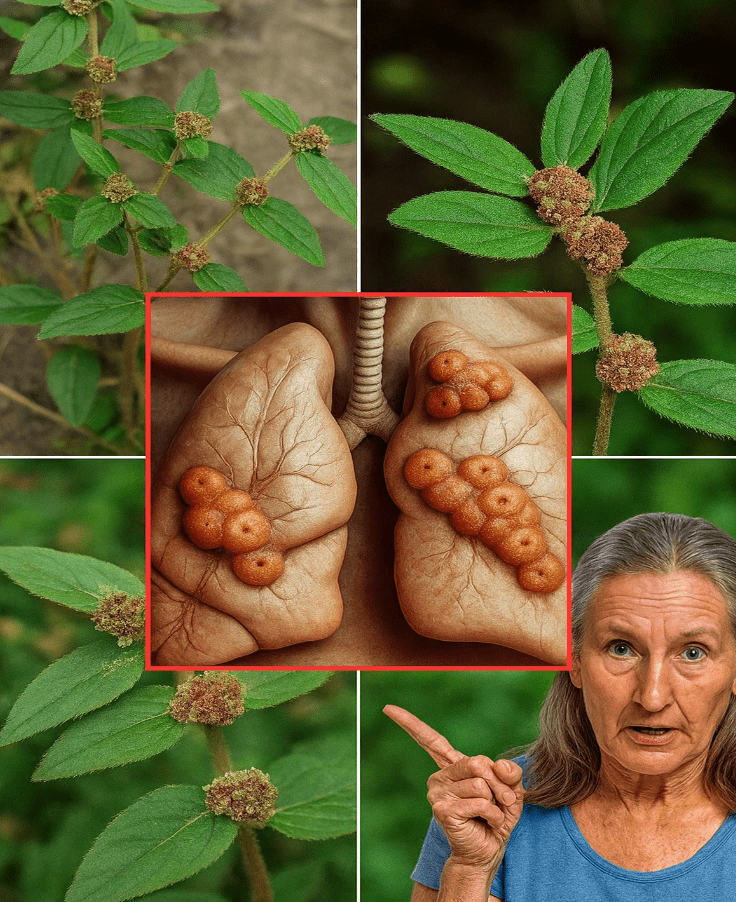
What Is Euphorbia Hirta?
Euphorbia Hirta, commonly known as asthma weed or snakeweed, is a small, hairy herb native to tropical and subtropical regions. Belonging to the Euphorbiaceae family, it grows up to 40 cm tall with reddish or purplish stems and elliptical leaves. Its nickname, asthma plant, comes from its traditional use in treating respiratory conditions. Packed with bioactive compounds like flavonoids, terpenoids, and alkaloids, it offers a range of health benefits. Traditionally used in Ayurveda and other herbal practices, Euphorbia Hirta is valued for its anti-inflammatory, antimicrobial, and antioxidant properties, making it a versatile remedy for various ailments.
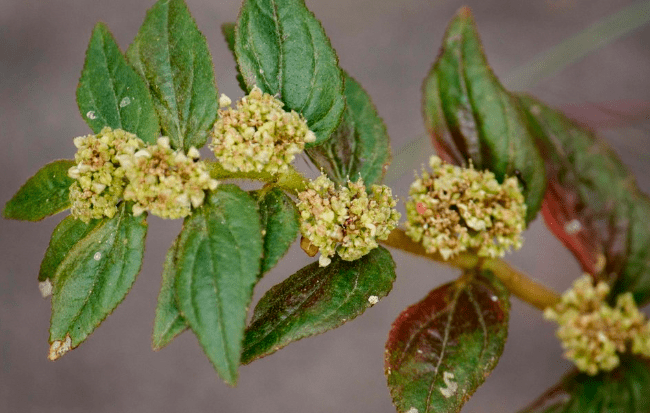
A Brief History of Its Use
For centuries, cultures worldwide have turned to Euphorbia Hirta for healing. In India, it’s a staple in Ayurvedic medicine for respiratory and digestive issues. In the Philippines, it’s known as “tawa-tawa” and used to combat dengue fever symptoms. African communities use it for skin conditions and infections. Modern research is now catching up, validating many of these traditional uses with scientific studies.
17 Health Benefits of Euphorbia Hirta
Below, we explore 17 remarkable health benefits of Euphorbia Hirta, supported by research and traditional knowledge, to help you understand its potential.
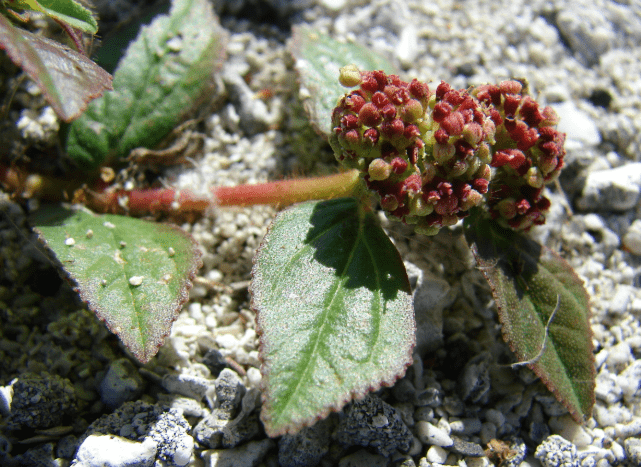
1. Relieves Asthma Symptoms
Euphorbia Hirta is renowned for its ability to ease asthma symptoms. Its bronchodilator properties help open airways, reducing wheezing and shortness of breath. A 2018 study on neonatal asthmatic rats showed that Euphorbia Hirta extracts significantly reduced airway inflammation, supporting its traditional use.
How to Use: Brew a tea from dried leaves to support lung function. Steep 1-2 teaspoons in hot water for 10 minutes.
2. Soothes Bronchitis and Cough
The plant’s expectorant qualities help clear mucus from the airways, making it effective for bronchitis and chronic coughs. Its anti-inflammatory compounds reduce bronchial swelling, easing discomfort.
How to Use: Drink a warm decoction made from fresh leaves twice daily to relieve cough and chest tightness.
3. Fights Respiratory Infections
Euphorbia Hirta’s antimicrobial properties combat bacteria and viruses causing respiratory infections. Studies show its effectiveness against pathogens like Staphylococcus aureus, which can trigger lung infections.
How to Use: Inhale steam from boiled Euphorbia Hirta leaves to clear congested airways.
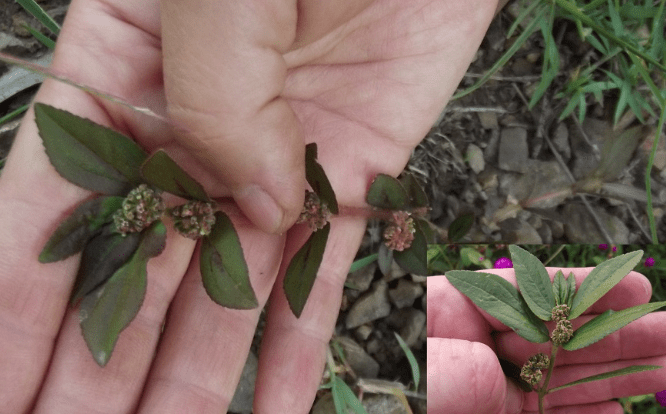
4. Supports Digestive Health
This herb is a traditional remedy for digestive issues like diarrhea, dysentery, and bloating. A 2010 study found that its flavonoid quercitrin has antidiarrheal effects in mice.
How to Use: Drink a diluted tea from dried leaves to soothe stomach cramps or indigestion.
5. Combats Intestinal Parasites
Euphorbia Hirta’s antiparasitic properties help eliminate intestinal worms, a common issue in tropical regions. It’s widely used in traditional medicine for this purpose.
How to Use: Consume a decoction of the whole plant under professional guidance to address parasitic infections.
6. Reduces Fever
The plant’s antipyretic properties help lower body temperature during fevers. In the Philippines, it’s used to manage dengue fever symptoms, including fever.
How to Use: Apply a cooled decoction as a compress or drink a mild tea to reduce fever.
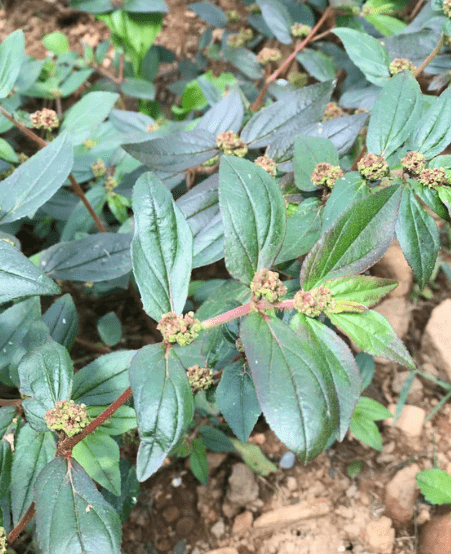
7. Promotes Wound Healing
Euphorbia Hirta’s antibacterial and anti-inflammatory properties speed up wound healing. Its leaf poultices are traditionally applied to cuts, burns, and boils.
How to Use: Crush fresh leaves into a poultice and apply to minor wounds after cleaning the area.
8. Treats Skin Infections
The herb’s antimicrobial effects make it effective against fungal and bacterial skin infections, including athlete’s foot and boils.
How to Use: Apply a concentrated leaf extract to affected areas, ensuring no open wounds.
9. Eases Acne and Eczema
Its anti-inflammatory properties reduce redness and irritation in acne and eczema. The plant’s antioxidants also promote healthier skin.
How to Use: Dab diluted leaf extract on acne-prone areas or use as a rinse for eczema relief.
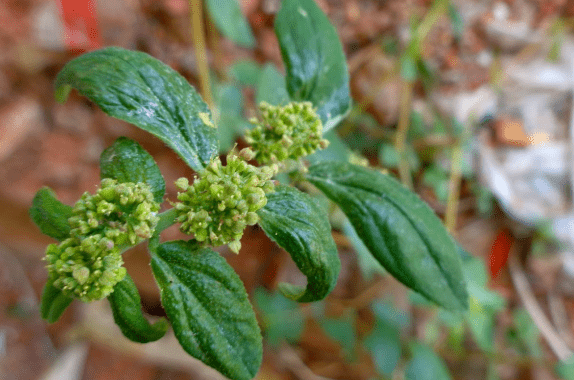
10. Supports Immune Function
Euphorbia Hirta’s antioxidant compounds, like quercetin, strengthen the immune system by neutralizing free radicals. This helps the body fight infections more effectively.
How to Use: Incorporate diluted Euphorbia Hirta tea into your routine for immune support.
11. Lowers Blood Pressure
The plant’s hypotensive properties may help reduce blood pressure, as noted in traditional African medicine.
How to Use: Consult a healthcare provider before using Euphorbia Hirta for hypertension, as it may interact with medications.
12. Enhances Urinary Health
Euphorbia Hirta acts as a diuretic, promoting urine production and aiding detoxification. It’s used to manage urinary tract infections and kidney issues.
How to Use: Drink a decoction of the whole plant to support urinary health, but avoid overuse.
13. Relieves Menstrual Cramps
The herb’s muscle-relaxing properties ease menstrual pain and may help regulate cycles.
How to Use: Sip a mild tea made from dried leaves during menstruation for relief.
14. Boosts Lactation
In some cultures, Euphorbia Hirta is used to promote milk production in nursing mothers.
How to Use: Consume a decoction of the roots under professional supervision to support lactation.
15. Reduces Inflammation
Its flavonoids and triterpenoids, like quercitrin and β-amyrin, exhibit strong anti-inflammatory effects, beneficial for conditions like arthritis. A 2014 study confirmed its efficacy in reducing inflammation in arthritic mice.
How to Use: Use a topical extract or consume tea to manage chronic inflammation.
16. Fights Dengue Symptoms
In the Philippines, Euphorbia Hirta (tawa-tawa) is used to increase platelet count and reduce fever in dengue patients. A 2012 study supported its role in managing flu-like symptoms.
How to Use: Drink a carefully prepared tea under medical guidance for dengue support.
17. May Combat COVID-19 Symptoms
Recent research suggests Euphorbia Hirta’s ACE-inhibitory activity could help mitigate COVID-19 symptoms like cough and respiratory distress. However, it’s not a cure and requires further study.
How to Use: Use only under medical supervision for respiratory symptom relief.
| Benefit | Key Compound | How to Use |
|---|---|---|
| Asthma Relief | Flavonoids (Quercitrin) | Tea from dried leaves |
| Wound Healing | Antibacterial agents | Leaf poultice on cuts |
| Digestive Health | Quercitrin | Diluted tea for diarrhea |
| Skin Infections | Alkaloids | Leaf extract on affected areas |
| Immune Support | Quercetin | Regular tea consumption |
How to Use Euphorbia Hirta Safely
Euphorbia Hirta offers numerous benefits, but proper use is crucial to avoid side effects. Here are practical ways to incorporate it into your routine:
Herbal Tea
Brew a tea by steeping 1-2 teaspoons of dried Euphorbia Hirta leaves in hot water for 10 minutes. Drink once or twice daily for respiratory or digestive support. Avoid excessive consumption to prevent nausea.
Topical Poultice
Crush fresh leaves into a paste and apply to minor wounds, boils, or skin irritations. Clean the area first and test on a small patch to check for allergic reactions.
Decoction
Boil the whole plant or roots in water to create a decoction for urinary health or fever reduction. Use small amounts and consult a professional for dosing.
Case Study: Aisha’s Story
Aisha, a 40-year-old from Nigeria, struggled with chronic bronchitis. After learning about Euphorbia Hirta from a local herbalist, she began drinking its tea twice weekly. Within a month, her coughing fits reduced, and she felt less chest tightness. While not a replacement for her prescribed inhaler, the herb complemented her treatment, improving her quality of life.
Complementary Lifestyle Tips
To maximize Euphorbia Hirta’s benefits, pair it with healthy habits:
- Stay Hydrated: Drink 8-10 glasses of water daily to support detoxification and urinary health.
- Eat Anti-Inflammatory Foods: Include berries, leafy greens, and omega-3-rich fish to reduce inflammation.
- Exercise Regularly: Low-impact activities like walking or yoga improve respiratory and joint health.
- Avoid Smoking: Smoking worsens respiratory conditions and reduces the herb’s effectiveness.
- Manage Stress: Practice meditation or deep breathing to enhance the herb’s anxiolytic effects.
Safety Precautions
While Euphorbia Hirta is generally safe in moderation, precautions are essential:
- Avoid During Pregnancy: The herb may cause uterine contractions, posing a miscarriage risk.
- Limit Oral Intake: Excessive consumption can lead to nausea or vomiting.
- Check for Allergies: Test topical applications on a small skin area to avoid irritation.
- Consult a Doctor: If you’re on medications or have chronic conditions, seek professional advice before use.
Common Questions About Euphorbia Hirta
Below, we address common concerns in an accordion-style format for clarity.
Can Euphorbia Hirta cure asthma or dengue?
It cannot cure these conditions but may help manage symptoms like wheezing or fever when used as part of a broader treatment plan.
How much Euphorbia Hirta is safe to use daily?
A safe dose is 1-2 teaspoons of dried leaves for tea, once or twice daily. Consult a herbalist for personalized dosing.
Are there side effects?
Possible side effects include nausea, vomiting, or skin irritation. Start with small amounts and monitor your body’s response.
Can it be used with medications?
It may interact with drugs like antihypertensives. Always consult a healthcare provider to avoid interactions.
How long does it take to see results?
Benefits like reduced inflammation or respiratory relief may appear within weeks with consistent use, but results vary.
Disclaimer: This content is for informational purposes only and does not replace professional medical advice. Consult a healthcare provider before using Euphorbia Hirta, especially if you have chronic conditions or are on medications.




